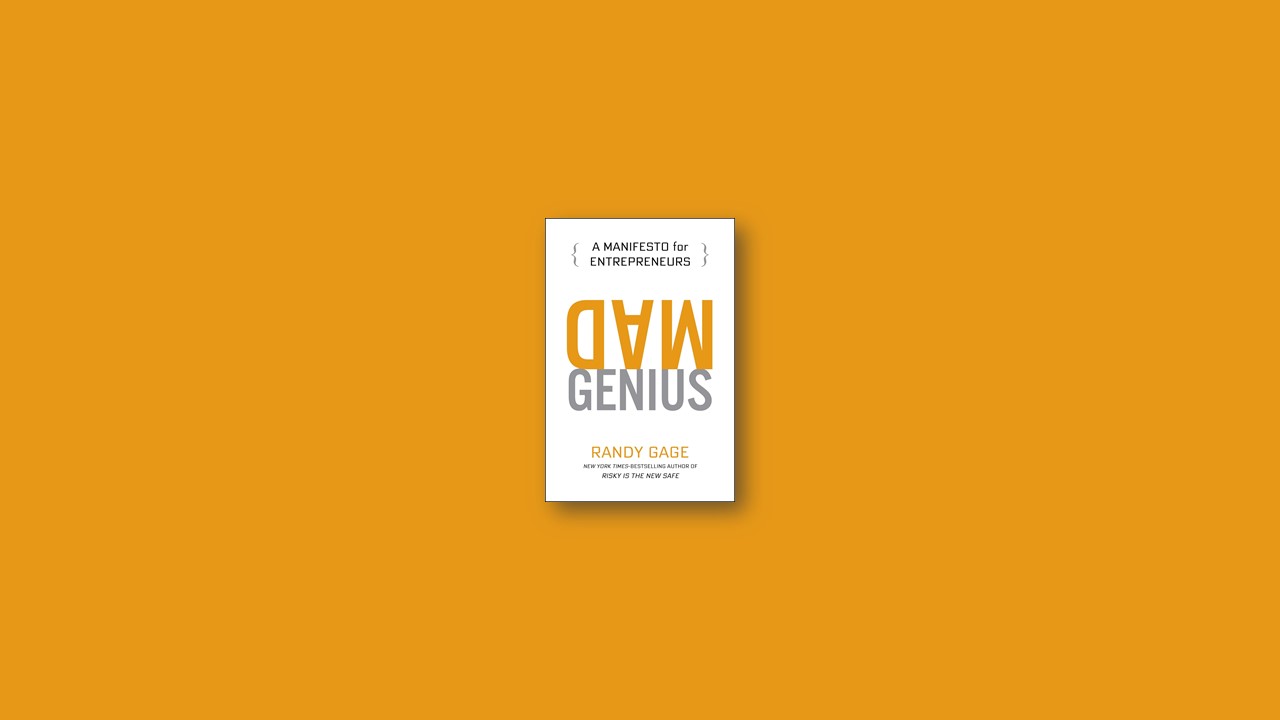CREATING ART
Entrepreneurship is artistry, because we create entities that have never existed before. Like all true artists, we don’t create our art for the money or the fame, we create our art because we have to. We have no problem becoming the next dot-com billionaire gracing the cover of Fast Company, but we’d do what we do whether it made us rich or not. There is a void in our psyche that can be filled only when we are solving challenges, designing solutions, developing products, opening markets, innovating processes, and creating jobs.
This is a yearning that not all people feel. In fact, most don’t. Most people who go to work are happy to fit in, look competent, and not get fired. When they set out to create something—whether it’s a pizza parlor, a sci-fi screenplay, or a boutique advertising agency—they try their hardest to fit in with the others in their space.
True entrepreneurs, and the visionary employees who think like them, aren’t interested in following the pack. They have to lead the pack. Not for ego or status. Simply because they can’t operate any other way.
SEE THE INTANGIBLE
There was a time when Amazon was a ridiculous idea—until the moment it became a brilliant one. There was a time when MySpace was a concept of genius—until it became a flop—and perhaps could become something significant again. Facebook was a hit, then a dud, then took over the world. At least for now.
Innovation and other breakthrough ideas come about from a higher level of thinking than problem solving or even anticipating trends. Innovation and true breakthrough concepts come about only when we have the courage to go back to a blank canvas and envision a reality that has never existed before. This is Mad Genius. This is never saying no and seeing only possibilities.
DECIDE WHERE TO RESIDE
Mad Genius starts with a decision. The decision to tap your genius is about thinking in new and different ways. It happens when you refuse to accept no and decide to find a way. Even when there isn’t a way.
Mad Genius also is dramatically affected by the neighborhood you choose to hang out in. Not the street you live on, but the region where you park your mind. And try as you might, you can’t live in two places at once. Here are the possibilities:
- This is where most people live. There’s a serious overpopulation issue here.
- Less populated but still very crowded. No one will criticize you for living here. In fact, most of your neighbors will graciously welcome you to the neighborhood and encourage you to stay.
- Real estate values are high in this neighborhood. Lots of people want to live here, but few actually do.
- Mad Genius. This is the place where the elite artists in any profession hang out. It’s a members-only club, but there’s no invitation. You qualify for the club just because you decide to. You knock on the door of opportunity, and if it doesn’t answer—you kick in the goddamned door.
THE PRICE YOU PAY
Steve Jobs is idolized for being an innovative, creative genius, and he certainly was. But don’t forget the serious failures and missteps he had along the way. In reality, it was his willingness to fail that ultimately led him to succeed at such breathtaking levels.
Did you know that when Jobs died, he was the single largest shareholder of Disney? That’s where his greatest wealth came from, not Apple. After he was fired from Apple in 1985—something that was probably the right decision, from Apple’s point of view—one of the two companies he founded was Pixar. It took Pixar nearly a decade to bring out its first film, the first all digitally animated film, but its eventual sale to Disney made him more than just a board member. It made him a billionaire.
If you want to do something epic, you must be willing to face challenges, some of which will temporarily defeat you. But those challenges are the stepping-stones that help you modify your strategies, gain new knowledge, and develop the character traits required to become great.
THE PROBLEM WITH PROBLEM SOLVING
When dealing with any challenge or setback, consider your frame of reference and the context of the discussion. Often the premise is misstated, and if the premise is wrong, everything that comes from that premise is wrong.
If you charge your team with solving a problem, you shouldn’t be surprised to discover later that they have been looking backward. Problem solving in and of itself is inherently backward looking.
For real breakthroughs you have to stop living in the problem and live in the solution instead.
The same holds true if you’re instructing your team to solve a puzzle. Jigsaw puzzles work because all the pieces are in the box when you buy them; all you have to do is figure out where to place each piece.
THE CREATIVITY TRIAD
Three things are necessary to foster creative genius: experience, some form of a capturing system, and taking action. Let’s look at each.
The experiences you go through provide the stimulation that jump-starts your creativity. This is why most people aren’t creative. They do the same thing, day after day. They work in the same dead-end job for years, eat at the same restaurants, ordering the same entrée, and vacation at the same place every year. They have a standardized, limited spectrum of experiences.
Creative people travel, learn new languages, study other cultures, and meet many different people. Their lives are a kaleidoscope of many interesting and different experiences. And because each day offers new experiences, neural pathways don’t grind ruts in their brain. They aren’t so susceptible to habitual thinking and are much more likely to attain a self-actualized state.
The other thing that creative people do is to capture their experiences and internalize them. That’s why so many creative people are speakers, writers, musicians, actors, and, of course, entrepreneurs. Actors like Al Pacino, Meryl Streep, and Denzel Washington lose themselves in a role. They are subconsciously capturing the emotion of the situation they are acting out. Only they aren’t acting anymore; they are living in the role. A creative writing genius like Hemingway captured the ethos, emotion, and physical context of the situations he wrote about. He put himself into the situation and then brought us along for the ride.
BE LIKE WATER
At some point in your quest for Mad Genius you’re going to be stuck in conventional thinking caused by your existing beliefs and programming. Or you’ll finally break from that but will encounter clients, coworkers, or bosses who are afraid of big ideas. They will be armed with feasibility studies, committees, or long-standing corporate culture of why bold, daring, and imaginative things simply cannot be done.
It is times such as these that you must be like water. Bend, adapt, reshape, and reform. Find new directions or different levels. You have to stop trying to assert yourself with frontal opposition against nature, but bend with it.
Sometimes you don’t have a choice in the events that happen to you. But you always have the choice in how you respond to those events.
TAKE A SABBATICAL
First, make sure you know what a sabbatical is and why you’re doing it. Many people think a sabbatical is like a long vacation, but that’s not accurate. Sabbaticals are really about learning and growing.
Another consideration is the finances. It really works best when you have the money thing out of the way. If you’re not there yet, set a goal for when you could take a sabbatical and work toward that.
You can’t wait until your inbox is empty to focus on the big things. Your inbox will never be empty, but your well of Mad Genius will be.
BREAK THE RULES
If you want to write a song, there are certain structures to follow. Unless you decide to break them all and create something brilliant like Ed Sheeran does.
If you want to produce a popular television show, be mindful of scale, number of characters, and the limitations of the small screen. Unless you want to produce Game of Thrones, the most successful television show in the world.
If you want to sell books, do it the way it’s been working for at least two hundred years. Unless you want to create something like Amazon.
When it comes to rules, here’s the only one that counts:
Know the rules, and be willing to break the rules—as long as you know why you’re breaking them.
STOP SETTLING
You see that a competitor has a strong market share, so you decide to just cede the space to them.
No one’s ever done it before, so you decide it’s better not to attempt it.
You launch your cutting edge, innovative product, but market it with boring, conventional advertising because that seems normal.
You build a cookie-cutter website because all the other companies in your industry do it that way.
Stop it. That’s the way the herd thinks, but that kind of thinking won’t take you to where you want to be.
Don’t be one of the millions who coasted through their lives and died with their genius still left untapped. If you hoard your Mad Genius, it withers away. When you share it, it grows stronger.
Be bold, daring, and imaginative, because the world needs Mad Genius right now. And you are just the person to provide it.


